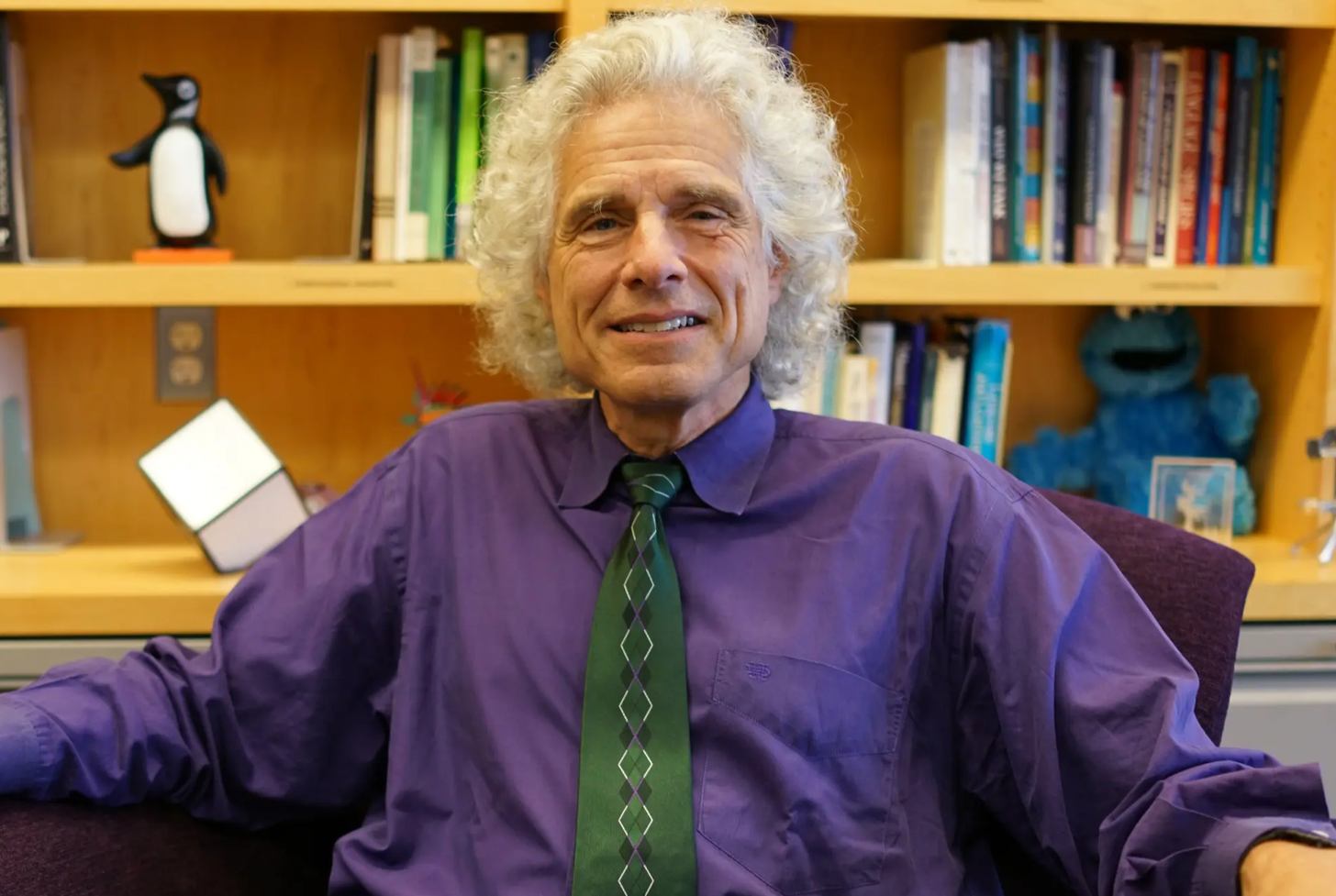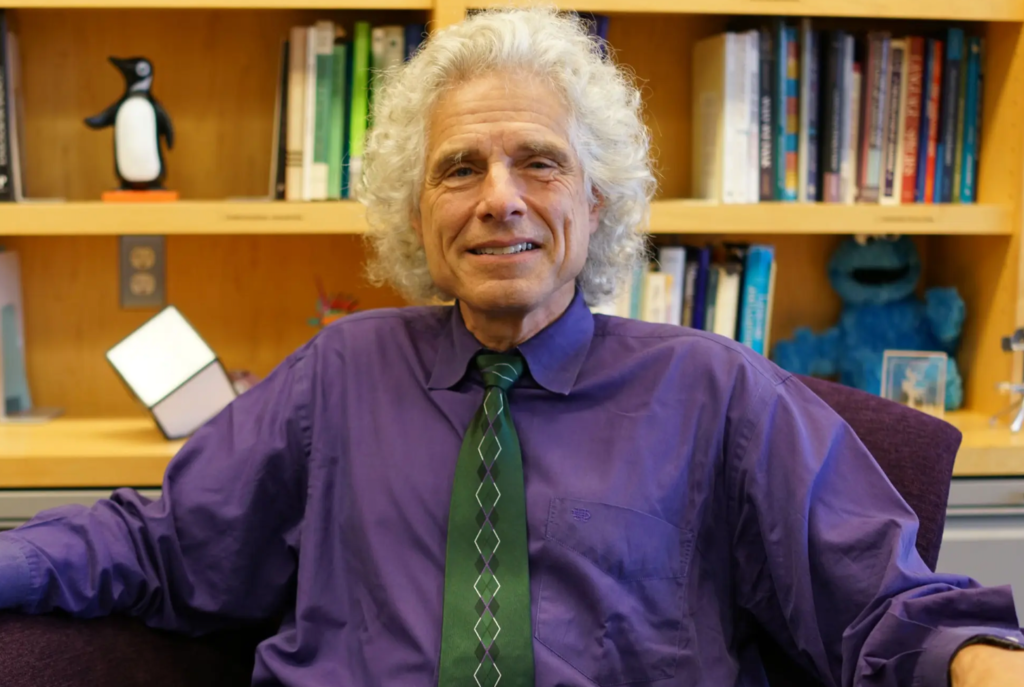

In the early 2000s, I coined the phrase “rational irrationality,” and later made it the foundation of my The Myth of the Rational Voter (and well as my case for betting). It’s very gratifying, then, to see that Steven Pinker is on board. From his recent interview with Richard Hanania, entitled “Rationality Requires Incentives.”
Richard: Yeah, I think that’s right. I guess, a different way to ask that question, is there a rationalist case against rational irrationality as far as, “Okay, I accept your arguments. I participated in this project of having a discussion and giving reasons for my belief.” But when it comes to religion, when it comes to politics, when it comes to my ultimate views of the universe, there’s no instrumental reason for me to believe in the truth. So I’m going to indulge in whatever I feel. And most people don’t think like this, but …
Steven: Actually I think most people do think in that monologue that you just shared…
Richard: Not consciously …
Steven: Not consciously, but I think, in fact, I think that’s a huge part of the answer to one of the puzzles that motivated the book. Namely, why does it appear that humanity is losing its mind? How could any sane person believe in QAnon or chemtrails, the conspiracy theory that jet contrails are really mind-altering drugs dispersed by a secret government program? And part of the answer is that people are in fact, most people, most of the time are rational about their day-to-day lives, about holding a job and getting the kids to school on time. They have to be. We live in a world of cause and effect and not of magic. So if you want to keep food in the fridge or gas in the car, you pretty much have to be rational.
But then when it comes to beliefs like cosmic, metaphysical beliefs, beliefs about what happened in the distant past and the unknowable future, in remote halls of power that we’ll never set foot in, there people don’t particularly care about whether their beliefs are true or false, because for most people and for most times in our history you couldn’t know anyway. So your beliefs might as well be based on what’s empowering, what’s uplifting, what’s inspiring, what’s a good story. And people divide, I think, their beliefs into these two zones. What impinges on you and your everyday life, and what is more symbolic, mythological?
It’s really only with I think the Enlightenment more or less that the idea that all of our beliefs should be put in the reality zone, should be scrutinized for whether they’re true or false. It’s actually in human history a pretty exotic belief. I think it’s a good belief, a good commitment, but it doesn’t come naturally to us.

READER COMMENTS
Andrew_FL
Sep 28 2021 at 12:16pm
To which “zone” does the metaphysical belief that “all our beliefs should be in the reality zone” belong? How can one scrutinize such a belief for whether it is true or false?
Alexander Davis
Sep 28 2021 at 7:50pm
Right on the money. “You should only believe true things” is not a tautology. The thing is, the main problem with much of the kookiness described above is not falsehood– it’s negative consequences, be they personal or societal. Anti vax stuff is a memetic virus that aids the more tangible virus. Political cancer-mind leads to political dysfunction and the wanton alienation of your fellow human beings. If a delusion is net helpful in nearly every sense then I can’t knock it; I just think people are 1) bad at determining which delusions are worth having and 2) bad at determining what is true in general (due to laziness, stupidity, etc.).
Jonathan S
Sep 28 2021 at 11:15pm
Well, that’s the exception…
Pinker’s view seems to be a re-hashing of verificationism, logical positivism, scientism, etc. All popular views at various times, that ended up crumbling as their premises cannot live up to the foundational claim. While Pinker is correct that QAnon, etc. are irrational, his reasoning towards that conclusion needs improvement.
Josh S
Sep 28 2021 at 4:25pm
I’m curious how this explains conspiracy theories that do directly impact health and life, such as being believing COVID-19 is a hoax even when their friends, relatives, and even they themselves are dying from it? Is there some stickiness for theories that form while the impact is indirect, or entanglement with other beliefs?
MarkW
Sep 28 2021 at 5:08pm
I’m curious how this explains conspiracy theories that do directly impact health and life, such as being believing COVID-19 is a hoax even when their friends, relatives, and even they themselves are dying from it?
That’s pretty easy — the vast majority of people *don’t* experience their friends, relatives, or themselves dying from Covid-19. Nearly all who get it recover (regardless of whether or not they’re vaccinated). The counter-examples are constantly in the news, but personal experience for most anti-vaxxers is that the disease actually isn’t serious. Their personal encounters with Covid mostly confirm their beliefs rather than contradicting them.
Josh S
Sep 30 2021 at 4:01pm
Hmm, maybe I worded my question poorly. The model fits with the people that don’t have such first hand experience, but my question is what happens with the people that do experience it (however small that might be). It feels like there’s something missing there.
Jim Dunning
Oct 3 2021 at 7:46pm
Josh, I don’t know a single person who has died from COVID-19 — or at least, if anyone I know has died, the information hasn’t reached me yet. This analysis, admittedly early in the pandemic, estimates that if I know 600 people, at least one of them will die from COVID-19. Now, I don’t know if I know 600 people, but I certainly don’t keep in regular contact with that many, so I’m unsurprised that I haven’t heard of a family member or friend who’s succumbed even if that event transpired.
With that said, I can see that a very large number of people who start out as skeptical would remain so since they never encounter the disease personally. (I am not one of them.)
Brian
Sep 28 2021 at 6:14pm
Since another economics blogger wrote in the past few hours about straight but bumpy roads necessitating steering adjustments I am reminded of a moment in conversation. A person I knew who later earned degrees and worked in law once told me that minor steering adjustments were involuntary and astonishingly so. In my own experience I feel anxiety when I hold the steering wheel perfectly still because I can see the need to make steering adjustments even on straight roads. The anxiety seems to arouse the desire to make adjustments. Since I recognize this desire, the adjustments cannot possibly be involuntary. They are deliberate even if well practiced to the point of being nearly effortless.
As Pinker suggests, people sometimes believe what they want to believe when there are no adverse consequences of errors in belief, but there might be other contributing circumstances. Some errors in belief might be due to under investment in thinking about one’s own motivations. The existence of the phenomenon of aphantasia leads me to think there might be an analogous phenomenon when it comes to thinking about one’s own motivations.
Another incident comes from a high school statistics class. A “top student” kind of person who went on to become a physician was in a statistics class with me. We were instructed to find the probability that a car is yellow. Obviously you would want to start the count at a randomly selected car. It seems randomization is an important practice in science. As we arrived at the side of a road to count yellow and not yellow cars and prepared to record with pen and paper, this person suggested that we start with an approaching car that was yellow, seemingly unaware that this might or would bias the result. (It would definitely bias the result if the car he selected was chosen because it was yellow. I did not inquire about his motivation.) This person was singled out by one science teacher to be given a somewhat special and exclusive opportunity to be sent to some sort of national science summer “camp”. I can recall another incident in a conversation with a physics PhD when a suggestion was made that would also have introduced bias. Since it is too tedious to inquire about a person’s motivations, in both incidents I opted for only the very slightest demurral. To ask “are you nuts” would seem to provoke a longer conversation with an insane person which is not an attractive use of time and also potentially aggressively offensive because they can give some innocuous made up excuse.
Comments are closed.